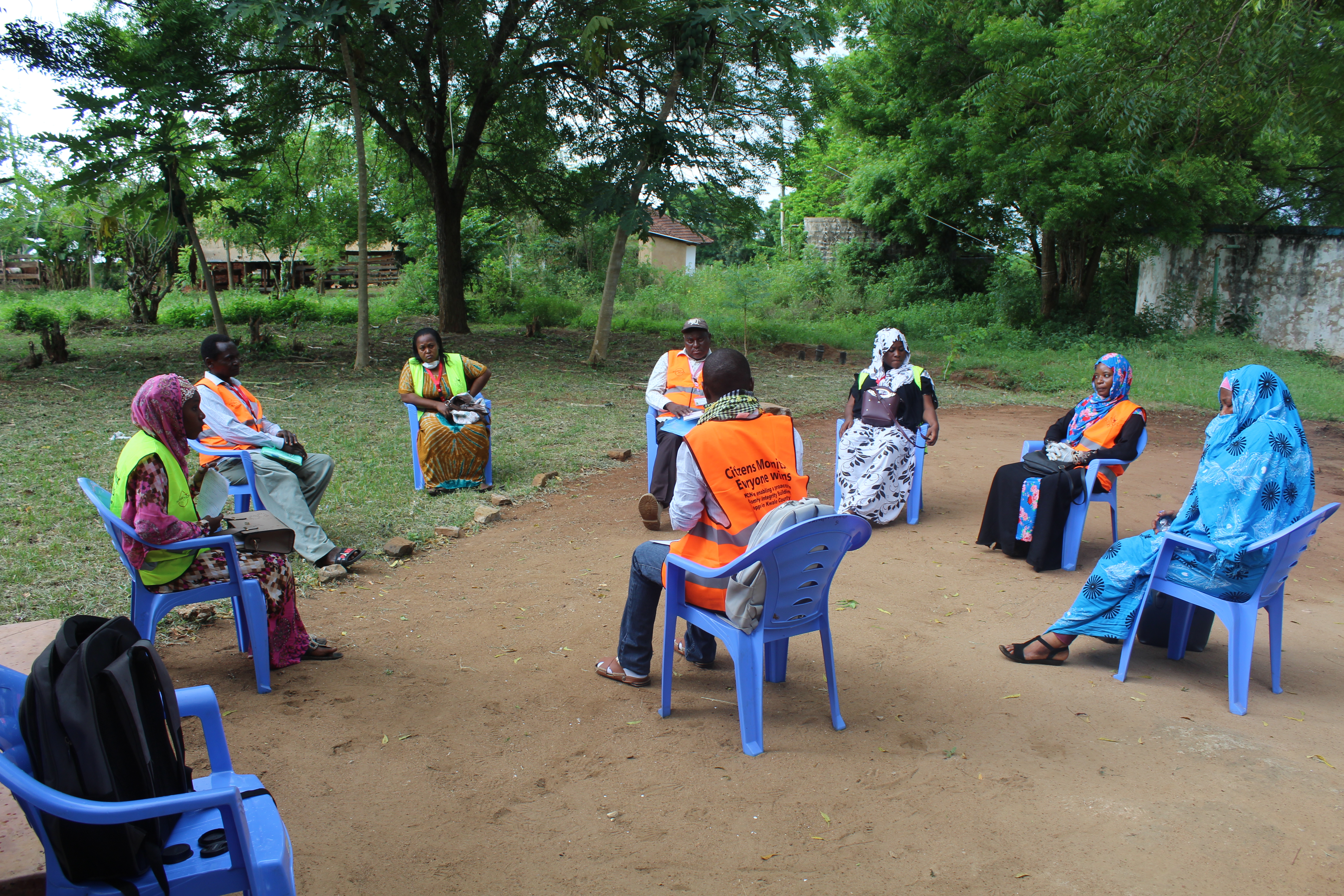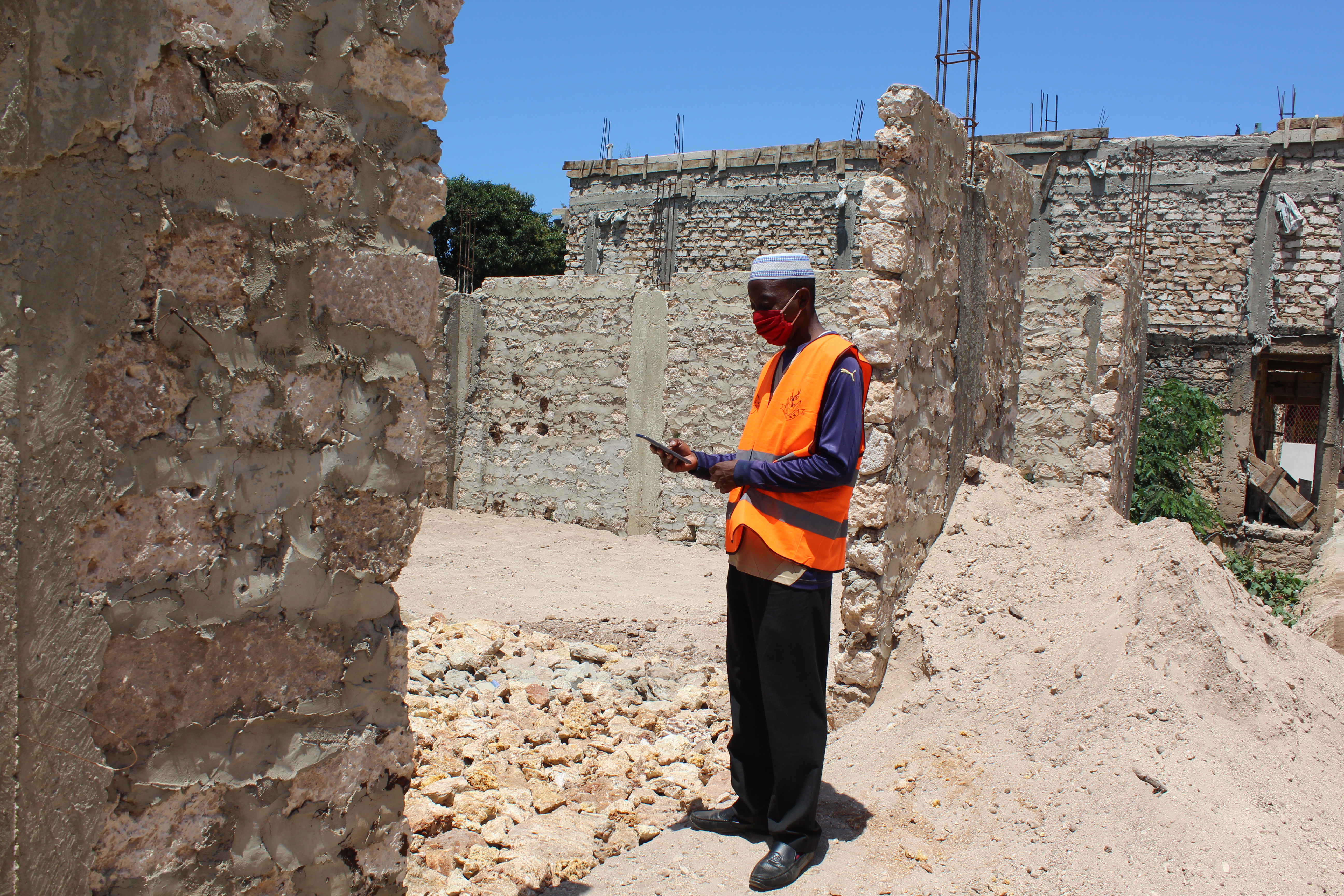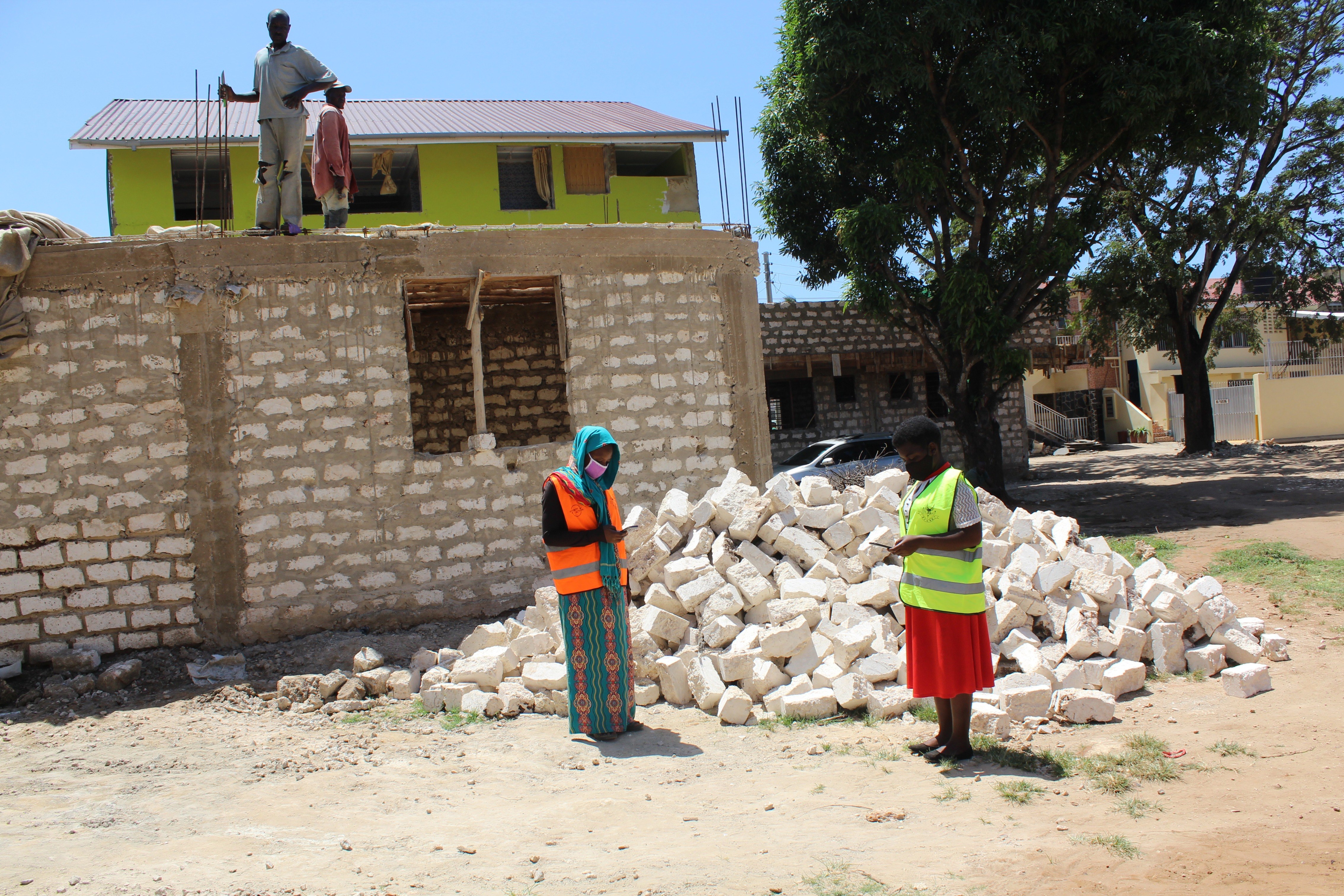NGO partnerships and COVID-19: A power imbalance of a new kind
We explore how we worked with two of our partner organisations in Kenya to adapt to the COVID-19 operating environment in a collaborative way, ensuring the safety of community monitors, and while respecting power dynamics.
Your organisation is leading on a development programme. One of your partner organisations, in a country with relatively few confirmed cases of COVID-19, wants to continue working on your joint programme despite lockdowns in much of the world. Would you be happy for them to continue? Would this mean putting vulnerable communities at risk unnecessarily? And at the end of the day, who has the final say?
At Integrity Action, we strive to address the unequal power balance in our partnerships. This means supporting our partners to make key decisions around our programmes as much as possible. Reacting responsibly to the COVID-19 situation presented a new challenge.
Many places where we work have seen significantly fewer cases of coronavirus than the UK and less stringent local restrictions. Our partners were keen to continue activities, while we were cautious about the risks to people involved in our programmes. How could we strive for an equal partnership where partners make the decisions, without compromising our duty of care? For us this has been a careful balance, and a learning journey.
Our work involves citizens monitoring projects and services that are important to them and working with those responsible to solve problems. A lot of this relies on community monitors visiting and observing projects. Achieving impact also relies on community monitors meeting face to face with key stakeholders to discuss and solve problems. When the COVID-19 pandemic was declared in March we were faced with the decision of stopping in-person activities altogether or supporting their continuation following local guidelines.
This was a decision that we wanted to take jointly with partners as much as possible and so we worked closely with them to understand the local context and potential implications of continuing each initiative. We were conscious of the power imbalance – we did not want partners to feel pressure to continue operations. We assured all partners that their funding in our joint programmes would not be affected if monitoring paused, as there were other activities that could be done in the interim.
The team at our partner organisation Kwale Youth and Governance Consortium (KYGC) reflected that "It was a participatory approach where every partner gave their own views. We all felt part and parcel of the Integrity Action family as everyone was involved in each and every step."
It became clear that we were more risk averse than many of our partner organisations who were mainly keen to continue the work. This is most likely because they have a better understanding of the risks locally and how to mitigate them.
Continuing face-to-face monitoring activities in some of our programmes was not possible, for instance where the services being monitored had been suspended due to the virus. Partners discontinued health service monitoring, as it was not possible to ensure monitors’ safety. We also advised that any monitoring involving people under eighteen should stop.
Community monitoring continues: Kwale, Kenya
In one of our programme in Kwale, rural Kenya, our partners and community monitors made the decision of whether in-person monitoring activities should continue. We shared our concerns with partners – we did not want community members to be exposed to unnecessary risk, and we did not want to contribute to the spread of the virus which would increase the strain on the health system. Partners decided that the risk was too high for anyone particularly vulnerable, such as pregnant women, to continue activities.

Community monitors discussing safe ways to continue activities at a distance
However, based on their assessment of the local situation, our partners felt it was safe to continue activities in rural areas, where there were no cases of the virus. KYGC explained that they "worked closely with the County Department of Health, who helped in analysis of which areas are… riskier and those which are… safer.’
The partners then asked community monitors in those areas whether they felt safe to continue. The KYGC team told us that "Most acknowledged that there [was] a risk but again through wearing of masks and washing hands regularly they were… willing to continue with the activities."Again, we needed to consider the power dynamics, as community members may have been concerned about losing their role and any status if they stopped participating in the programme. However, it seems that most monitors were in fact keen to continue because "they feared this was the very moment contractors would take advantage of circumstance and do lots of shoddy work now that no one is ready to follow up with the oversight role," as noted by KYGC colleagues. They were not willing to risk this.
With partners and monitors keen to continue, we all agreed that monitoring could continue in rural areas following the guidelines of the Kenyan government and with appropriate safety measures in place.
Community monitors visited projects alone, wearing masks, observing social distancing and without taking public transport. Partners clearly communicated these guidelines to monitors, and followed up with daily calls to check in with them and to share any updates related to the virus. As noted by staff at the Kwale County Natural Resources Network (KCNRN), “During our online reflection meeting with community monitors and other stakeholders, we [ensured] the information on coronavirus [was] well understood on the risk[s], [transmission] and precaution[s]. We also keep sharing the guidelines, [statistics] and other updates provided by the public health [authority] and the World Health Organization.”

Community monitor wearing PPE and checking that construction is continuing in accordance with plans
When it came to speaking with officials to get problems solved, people taking part in our programme replaced face-to-face meetings with WhatsApp messages and phone calls. This raised some challenges, as it was harder to reach duty bearers remotely, compared to when it was possible to drop into their offices. However, community monitors were still able to work remotely with local officials to solve problems found in projects. Partner KYGC reflected that "Although it’s not a perfect way of solving problems, it has helped a lot".
Throughout this period, we have continued to reassess this approach. We have had increased contact with partners, meeting weekly to discuss whether it is still safe to continue.
Overall, making the decision of how to adapt our programmes was not simple. We had to carefully balance our risk-related concerns with the opinions of partners, who in many cases were less risk averse. We wanted to ensure the agency of both our partners and the community members involved. We supported our partners in their decisions where possible, trusting them to assess risks, even when this went against our instincts. And we ensured that community monitors were consulted, as this is their work and they often feel a responsibility and drive to continue it.
We have found that, as much as possible, it is good for programme decisions to be made jointly between us, our partners and those involved in implementing the work in communities – the monitors. This way we can incorporate our view from an international perspective, partners can provide their inputs based on their local knowledge, and community monitors have a channel to express whether they feel comfortable with the decision. In the case of this particular programme in Kenya, this allowed for activities to continue through a time of crisis in a safe, cautious and flexible way.
Want to share what your organisation has done to adapt its programming, or share your thoughts on our work? We'd be delighted to hear what others are doing to adapt citizen-focused social accountability initiatives despite the pandemic – Tweet us at @Act4Integrity and we will share whatever we get.
Photos: Kwale County Natural Resources Network


